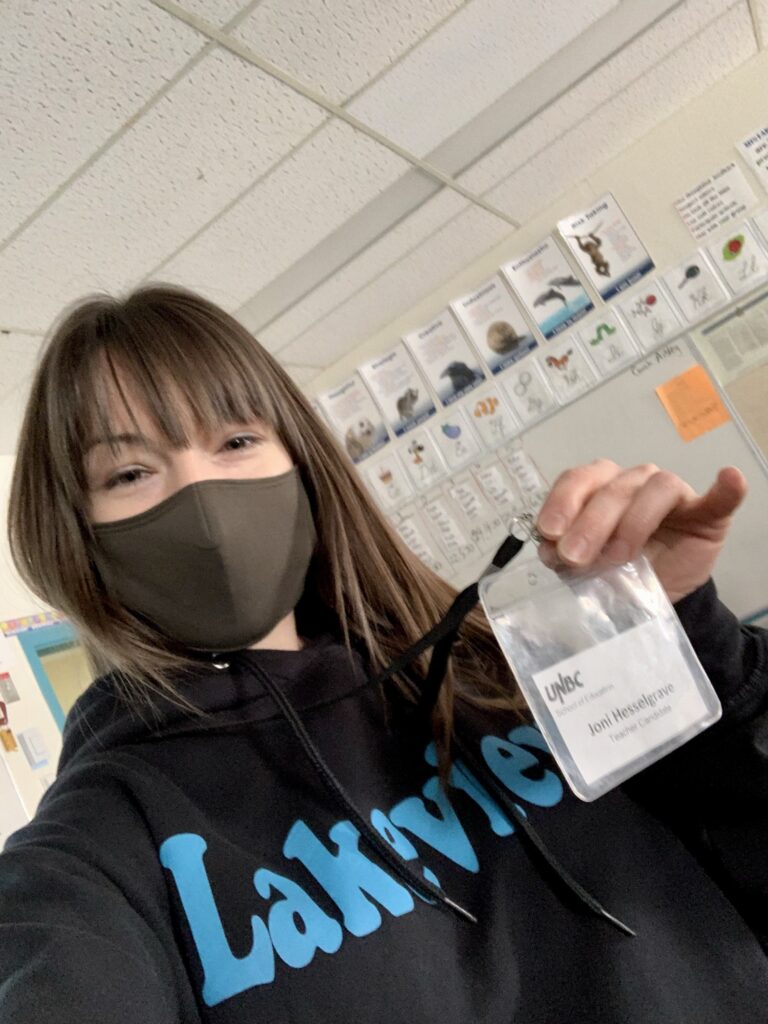My Experiential Practicum is fast approaching! With only three days until “go-time”, I must admit that I have a slight case of the pre-practicum jitters. I liken how I am feeling to how I have felt prior to big races, games, or performances; to those minutes leading up to final presentations; or, in my early days of teaching on-call, to the moments before going into unfamiliar classrooms with little (or no) time to prepare. That heightened awareness that all eyes will be on me. That sense of being ready, but also questioning my readiness. That feeling of excitement, but also fear of “messing up.” I am feeling “all the feels” heading into this practicum!
I will spend my three weeks in a split grade six/seven classroom. I had the opportunity to observe this class once last semester, during my Observational Practicum, and it was a wonderful experience. The past few Tuesdays have been spent familiarizing myself with the class (routines and procedures), the Coaching Teacher (CT), and her twenty-seven delightful students. My CT’s teaching style (and pedagogy) aligns closely with mine, and the students are active, engaged, and eager to learn. I could not have asked for a better practicum placement! The instructional component excites me (I feel that my time as a TTOC has equipped me for this part of practicum) and I feel adequately prepared to assess student learning (again, I feel that my TTOC experience, and my role as a part-time contract teacher, has armed me in this area of teaching). And yet, the jitters are still present! Why?!?! It boils down to lesson planning. As a Cohort, we have discussed how complex, time-consuming, and anxiety-provoking the UNBC lesson template is. I have put together lessons, instructed hundreds of students in more than one hundred classrooms, and assessed evidence of student learning, but I have never (in my three years of teaching) seen lesson plans that resemble the ones we are expected to produce in this practicum. I believe that it is the level of planning (and the short amount of time to get it done) that is stressing me out! I have never been asked to create lessons, or build-in assessments, to the degree of complexity or rigor demanded here.
To keep it manageable, my CT and I have decided that I will focus my lessons on Math and English Language Arts. In the interest of maintaining consistency (and teaching to mastery), I will follow my CT’s instructional framework for Mathematics (i.e., explicit instruction followed by student practice and daily formative feedback, followed by a low-stakes quiz). Monday, I will introduce a topic from the Math Makes Sense textbook, assign in-class practice questions, and then mark before the next day’s lesson so that I know where students are in their learning. This will help me decide what I need to revisit and/or re-teach. On Tuesday, I will hand back student work and review and/or re-teach before assigning more practice questions from the Math Makes Sense Student Homework book. Students will have time to do corrections, ask clarifying questions, and do extra practice (to be handed in and marked). On Wednesday, I will review and re-teach where needed. On Thursday, a review lesson will be provided along with more practice (i.e., Math games, white-board practice, and/or a Math-Aid worksheet). On Friday, I will provide review as needed before giving students a low-stakes (summative) quiz. The following week, I will introduce the next concept (i.e., move from 3.1 to 3.2). My assessment concern is how I will adjust my lessons to account for students that do not understand the concept at the end of each week, despite explicit instruction, ample practice opportunities, and feedback? Teaching to mastery is tricky, especially in a short practicum where lessons are cumbersome and complex to plan!
In English Language Arts, I will be doing a unit on “Persuasion.” My lessons will cover: (1) Editorials; (2) Reading Editorials; (3) Writing Editorials; and (4) Debating. Students will participate in several discussions, pair and shares, and group tasks, where I will formally observe their levels of understanding. Students will also have the chance to communicate their levels of understanding more directly, in formative assessments (i.e., in thumbs up/down, on exit tickets, and in “React and Respond” answers). At the end of the unit, students will participate in a debate, and I will assess their understanding of persuasion and communication skills against a co-designed “Debate Rubric.” Students will also turn in their own written editorial and self-assessment (using a co-designed “Written Editorial Rubric”). I will assess their editorial using the same rubric. The debate and the written editorial will serve as summative assessments of learning. My concern, here, is co-creating and using rubrics (with the little rubric-creating experience I have) that will be effective and valuable in moving student learning forward.
So, it is with this mix of jitters, excitement, and preparedness that I look forward to stepping into my practicum classroom this coming week 🙂


Leave a Reply